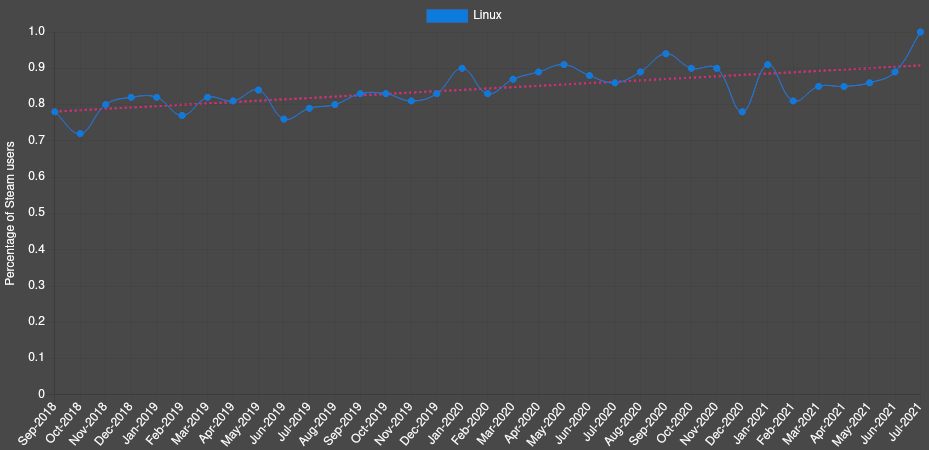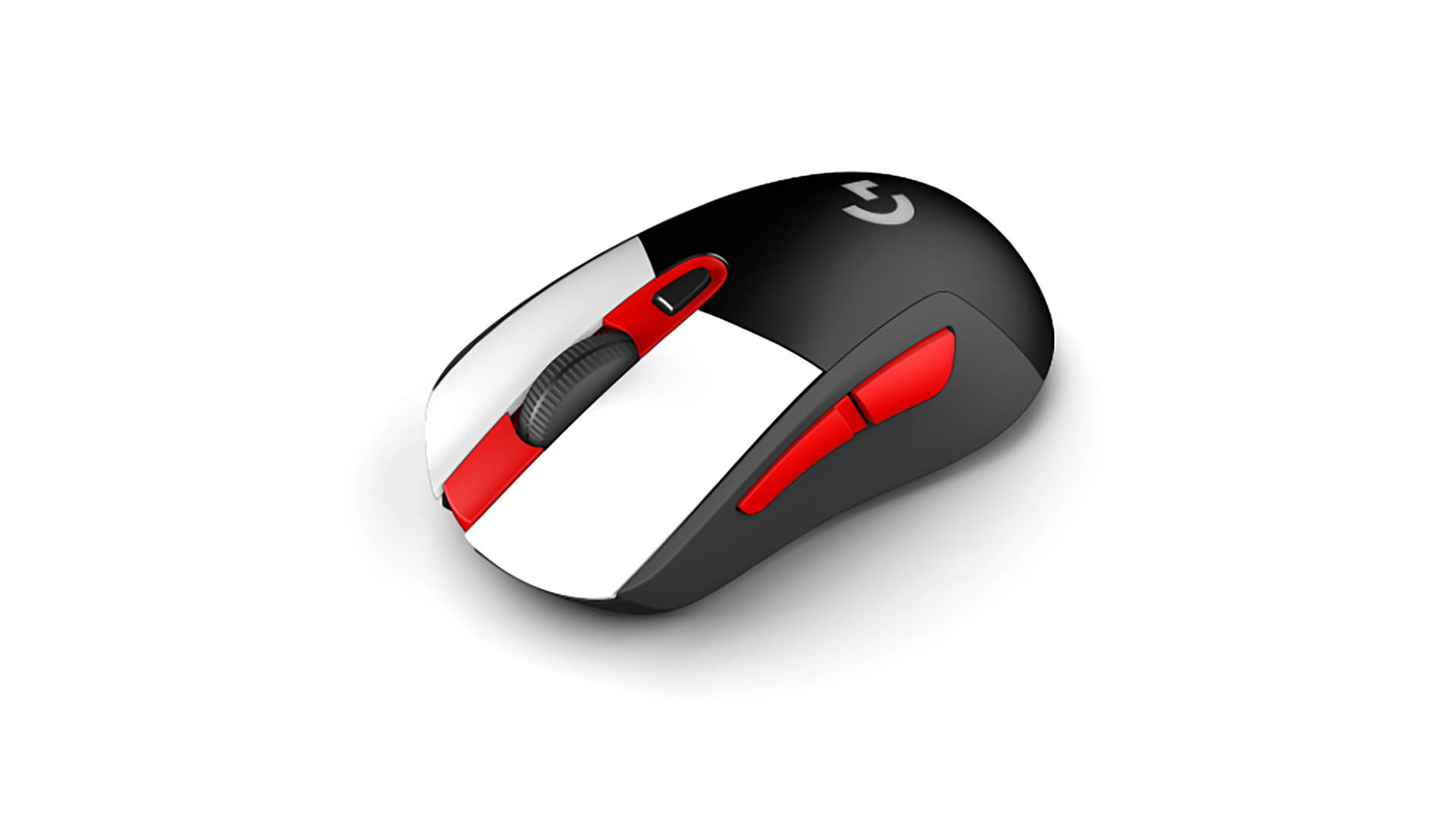Linux takes 1% of Steam market share as interest in Steam Deck rises
Expect this number to grow once Valve launches the Steam Deck later this year.

Valve published its monthly Steam Hardware Survey for July, and the biggest surprise came from the Linux gaming crowd. Aside from showing the usual Nvidia and Intel dominance in GPUs and CPUs usage among Steam users, there weren't many new takeaways from the latest report except Linux gaming rising to 1% in July, a first in years.
The fact that coincides with the unveiling of the Linux-powered Steam Deck surely can't be ignored. It seems likely gamers will have started to investigate whether their Steam libraries really will be playable on Valve's new handheld gaming PC when it launches in December.
Sweclockers suggests the last time Linux saw a spike remotely this close was a 2% market share jump when Valve announced Proton, a compatibility layer that allows Windows games to run on Linux, back in 2018. As impressive as Proton's first outing was, it still struggled to deliver as compelling a gaming experience as either native Linux ports, or gaming on a Windows OS. We haven't found evidence of that 2% spike ourselves, which could mean it tapered off real quick.
For context, Linux gaming has historically sat below 1%, according to the folks at gamingonlinux who have been tracking market share of the open source OS for a good few years now. They estimate that over 1.2 million active Linux users are currently on Steam, and the trend seems to be moving upward.
As Linux becomes easier to use, it makes sense that gaming on Linux slowly starts to tick up.


Best gaming mouse: the top rodents for gaming
Best gaming keyboard: your PC's best friend...
Best gaming headset: don't ignore in-game audio
The Steam Deck, which launches in a few months, runs on a Linux-based OS which could explain the steady increase in Linux gaming market share as some prepare for the portable gaming console by checking out this operating system.
It is worth stating that SteamOS 3.0, which the Deck will operate on, is based on the Arch Linux distribution, and that hasn't seen any movement in terms of an increased market share. The distro which seems to be responsible is Ubuntu 21.04, which has seen a 0.06% gain. That does still make sense in this context, however, given that Ubuntu is often regarded as the most accessible version of Linux for folk jumping ship from Windows.
The biggest gaming news, reviews and hardware deals
Keep up to date with the most important stories and the best deals, as picked by the PC Gamer team.
We expect the Linux market share to rise even further once Steam Decks start getting in the hands of the gamers running Steam OS, especially if the pre-order rush is any indication.

Jorge is a hardware writer from the enchanted lands of New Jersey. When he's not filling the office with the smell of Pop-Tarts, he's reviewing all sorts of gaming hardware, from laptops with the latest mobile GPUs to gaming chairs with built-in back massagers. He's been covering games and tech for over ten years and has written for Dualshockers, WCCFtech, Tom's Guide, and a bunch of other places on the world wide web.

